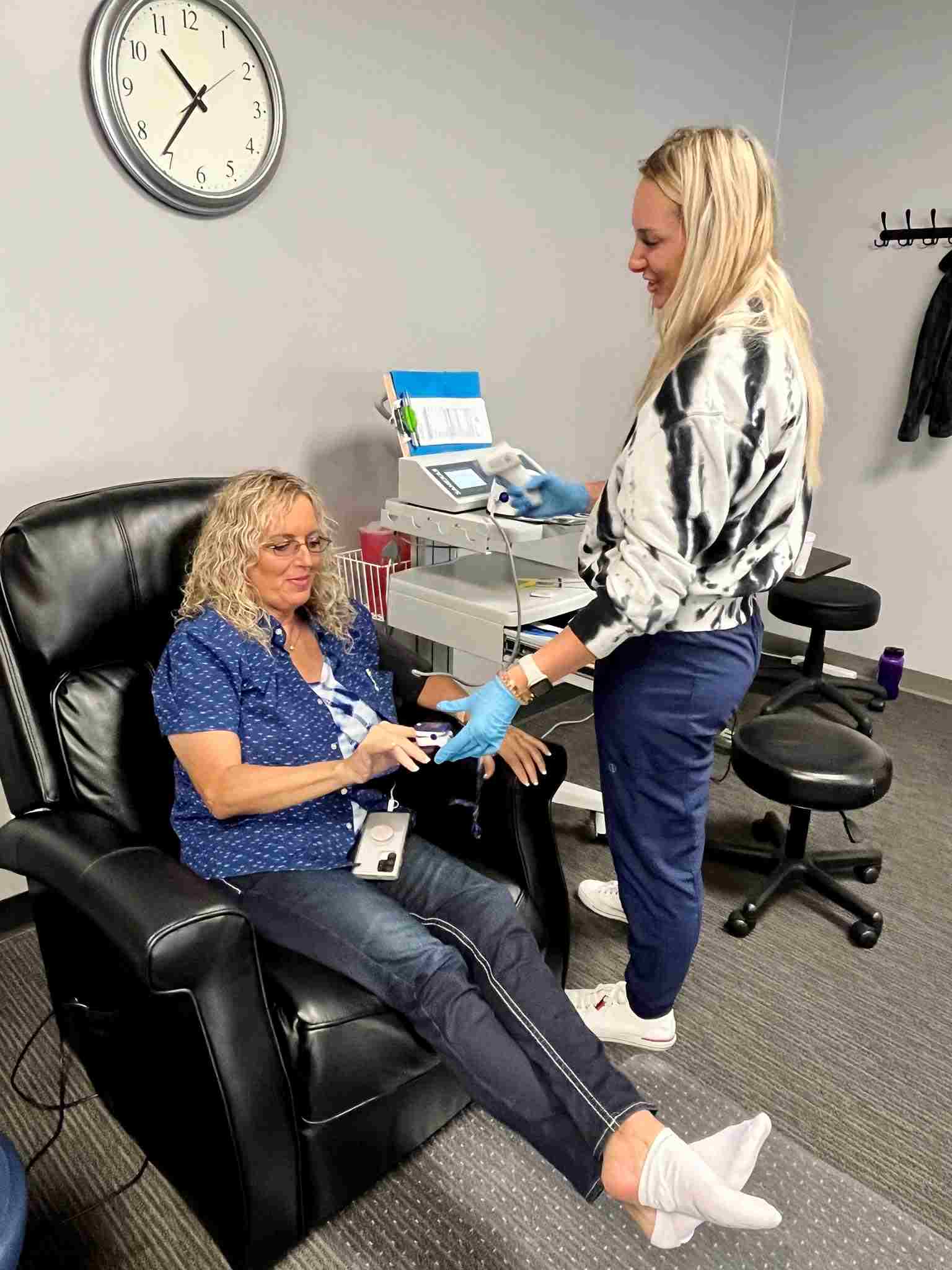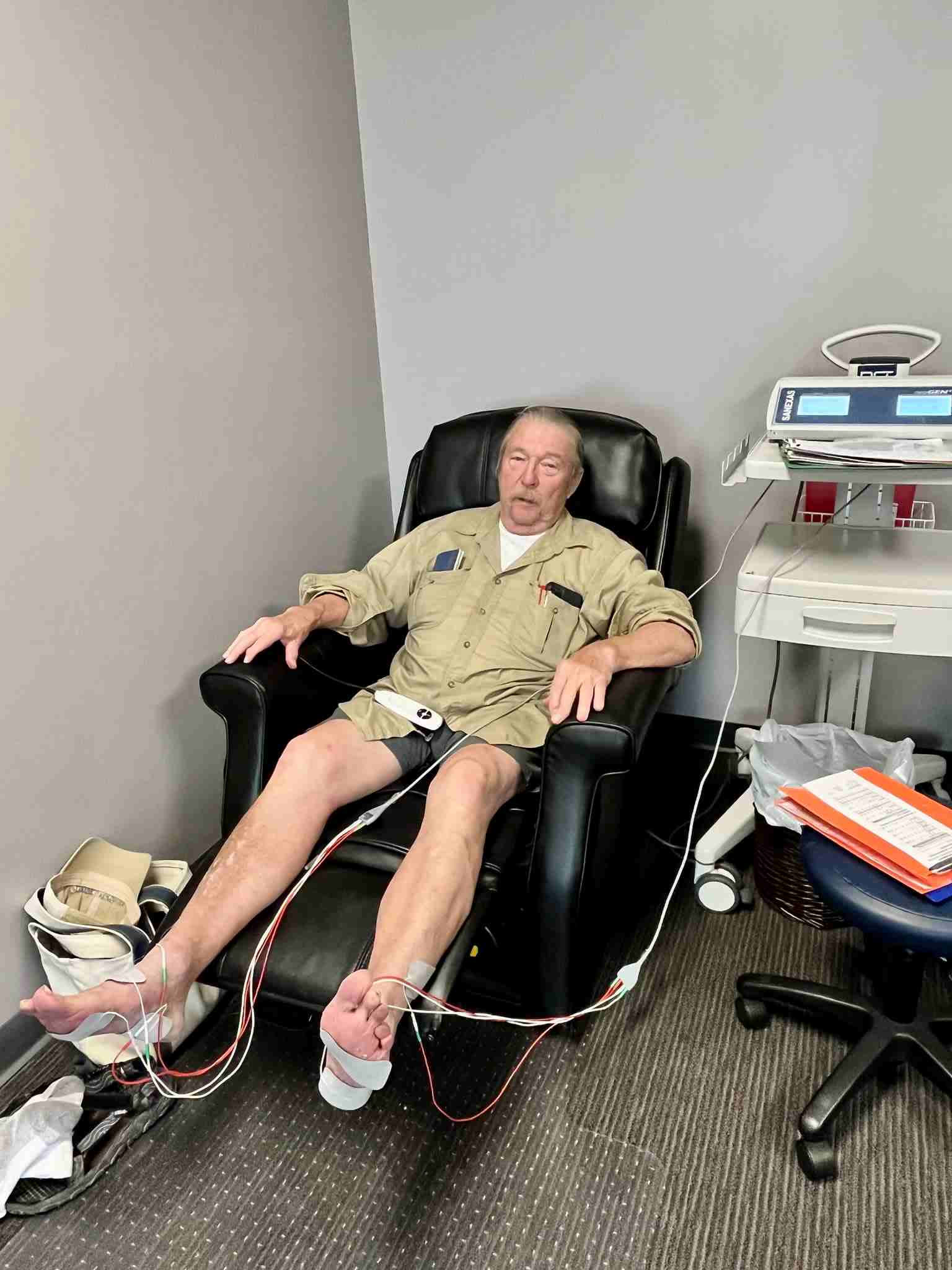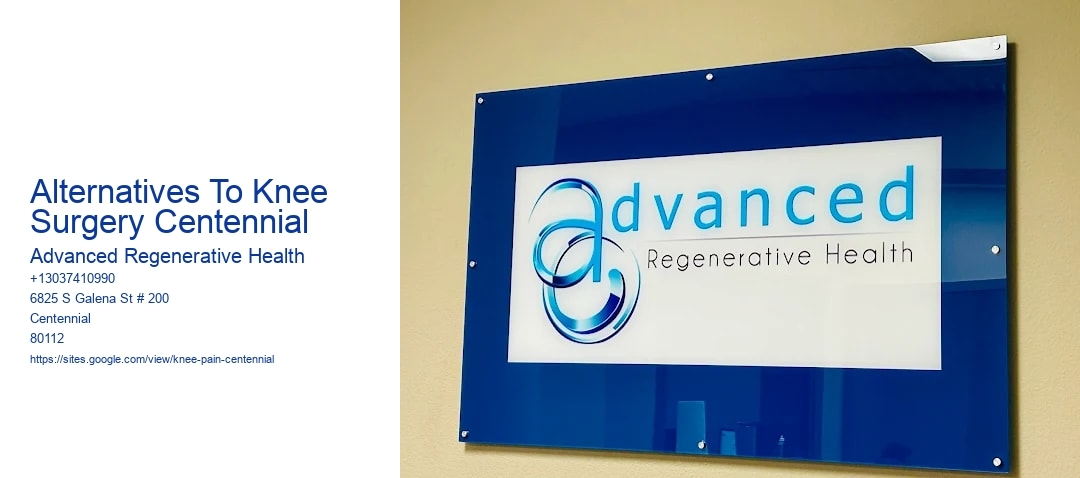Physical Therapy and Exercise Regimens
Knee pain is a common ailment that affects people of all ages, often interfering with daily activities and diminishing quality of life. Knee Pain Specialist near me . While knee surgery is a viable option for treating severe conditions, it is not always necessary or desirable, especially for those seeking less invasive alternatives. Physical therapy and exercise regimens present promising options for individuals in Centennial looking for ways to manage knee pain and improve mobility without going under the knife.
Physical therapy is a cornerstone of non-surgical treatment for knee issues. It involves a range of techniques designed to strengthen the muscles around the knee, improve flexibility, and enhance overall joint function. A physical therapist will typically conduct a thorough assessment of the knee to understand the underlying causes of pain and dysfunction. Based on this evaluation, a personalized therapy plan is crafted, which may include exercises, manual therapy, and modalities such as ultrasound or electrical stimulation. These sessions are tailored to the individuals needs, ensuring that progress is made at a comfortable and sustainable pace.
Exercise regimens, on the other hand, empower individuals to take an active role in their recovery.
Neuropathy Specialist Centennial Colorado
- Our clinic makes neuropathy specialist centennial colorado easier than trying to assemble furniture without instructions
- Arthritis Doctor Denver Tech Center
- Neuropathy Management Centennial CO
For those in Centennial seeking alternatives to knee surgery, combining physical therapy with a well-structured exercise routine can be a highly effective strategy. This holistic approach addresses not just the symptoms but also the root causes of knee pain, leading to more sustainable outcomes. Moreover, it encourages a lifestyle that promotes overall health and well-being, offering benefits that extend beyond knee pain management.
It is important to note that while physical therapy and exercise regimens are effective for many, they may not be suitable for everyone. Individuals with severe knee damage or specific conditions may still require surgical intervention. Therefore, it is crucial to consult healthcare professionals to determine the most appropriate course of action based on individual needs and circumstances.

In conclusion, physical therapy and exercise regimens offer valuable alternatives to knee surgery for residents of Centennial. These approaches not only alleviate pain and improve function but also empower individuals to take control of their health. By considering these non-surgical options, one can enhance their quality of life and maintain active, healthy lifestyles.
Injection Therapies: Corticosteroids and Hyaluronic Acid
In the realm of orthopedic treatment, particularly concerning knee ailments, the pursuit of alternatives to surgery has gained momentum. For many individuals in Centennial and beyond, the prospect of undergoing knee surgery can be daunting due to potential risks, recovery time, and costs involved. As a result, non-surgical interventions such as injection therapies have emerged as viable alternatives, offering relief and improved quality of life without the need for invasive procedures. Among the most prominent of these therapies are corticosteroid and hyaluronic acid injections.
Corticosteroid injections have long been a staple in managing knee pain, particularly for those suffering from conditions such as osteoarthritis. These injections work by delivering potent anti-inflammatory medication directly to the affected area, thereby reducing swelling and pain. The immediate relief provided by corticosteroids can be significant, often allowing individuals to resume their daily activities with minimal discomfort. However, it is important to consider the limitations, as repeated use of corticosteroids can potentially weaken cartilage and may not be suitable for long-term management. Therefore, while corticosteroids offer an effective short-term solution, they must be administered judiciously and typically as part of a broader treatment plan.
On the other hand, hyaluronic acid injections present a different approach by aiming to restore the natural lubrication and cushioning properties of the knee joint. Hyaluronic acid, a substance naturally found in the synovial fluid of joints, can become depleted in individuals with degenerative joint conditions. By injecting a synthetic version of this acid into the knee, the therapy seeks to enhance joint function and reduce pain over a prolonged period. Patients often report a gradual improvement in symptoms, which can last for several months, making hyaluronic acid injections an attractive option for those seeking sustained relief without the immediate side effects associated with corticosteroids.

The choice between corticosteroid and hyaluronic acid injections often depends on the specific needs and conditions of the patient. Factors such as the severity of the knee condition, the level of activity, and individual health considerations play a crucial role in determining the most appropriate treatment. In many cases, healthcare providers in Centennial and elsewhere might recommend a combination of therapies, including physical therapy and lifestyle modifications, to maximize the benefits and address the underlying causes of knee pain.
In conclusion, as the medical community continues to explore and refine non-surgical alternatives to knee surgery, corticosteroid and hyaluronic acid injections stand out as promising options. These therapies provide patients with the opportunity to manage their knee conditions effectively while avoiding the inherent risks and recovery challenges associated with surgery. For residents of Centennial looking for relief from knee pain, consulting with a healthcare professional to explore these injection therapies could be the first step towards a more active and pain-free life.
Platelet-Rich Plasma (PRP) Therapy
As the population ages and the prevalence of knee-related issues increases, many individuals find themselves facing the daunting prospect of knee surgery. While surgery can be an effective solution for severe cases, it often comes with significant risks and a lengthy recovery period. Fortunately, advances in medical technology have introduced alternative treatments that offer hope to those seeking less invasive options. One such alternative is Platelet-Rich Plasma (PRP) Therapy, which has gained attention in Centennial and beyond for its potential to alleviate knee pain and promote healing.

PRP Therapy is a regenerative medicine technique that harnesses the bodys natural healing abilities. The process begins with a simple blood draw from the patient. This blood is then placed in a centrifuge, where it is spun at high speeds to separate the platelets from other components. The resulting platelet-rich plasma is then injected into the knee joint, where it can stimulate the bodys repair mechanisms. Platelets contain growth factors and proteins that play a crucial role in tissue regeneration, making them an ideal candidate for promoting healing in damaged or degenerated knee tissues.
One of the primary advantages of PRP Therapy over traditional knee surgery is its minimally invasive nature. Unlike surgery, which often requires significant downtime and rehabilitation, PRP Therapy involves only a series of injections. This makes it an attractive option for individuals who wish to avoid the risks and recovery time associated with surgical procedures. Additionally, PRP Therapy is an outpatient procedure, allowing patients to return home the same day and often resume their normal activities shortly thereafter.
Moreover, PRP Therapy is a natural treatment that utilizes the patients own blood, reducing the risk of allergic reactions or rejection. This aspect of the therapy appeals to those who prefer holistic or natural approaches to healing. While the effectiveness of PRP Therapy can vary from person to person, many patients in Centennial have reported significant improvements in pain and function following treatment. As a result, PRP Therapy is becoming an increasingly popular choice for those seeking alternatives to knee surgery.
Despite its promise, PRP Therapy is not without its limitations. The treatments success largely depends on the severity of the knee condition and the patients overall health. It is most effective for individuals with mild to moderate knee issues, such as osteoarthritis or tendonitis, rather than those with severe joint damage. Additionally, PRP Therapy may require multiple sessions to achieve optimal results, which can be a consideration for those evaluating the overall cost and time commitment.
In conclusion, Platelet-Rich Plasma Therapy represents a promising alternative to knee surgery for individuals in Centennial and beyond. Its minimally invasive nature, use of the bodys natural healing properties, and potential for pain relief and improved function make it an appealing option. As with any medical treatment, it is essential for patients to consult with their healthcare provider to determine if PRP Therapy is appropriate for their specific condition. With continued research and advancements in regenerative medicine, PRP Therapy may offer a viable pathway to pain relief and improved mobility for countless individuals seeking alternatives to knee surgery.
Stem Cell Treatments and Regenerative Medicine
In recent years, the landscape of medical treatments for knee ailments has expanded significantly, offering promising alternatives to traditional knee surgery. Among these innovative approaches, stem cell treatments and regenerative medicine stand out as particularly exciting fields with the potential to revolutionize how we address knee issues, especially in Centennial and beyond.
Knee problems, whether from injury, arthritis, or degenerative conditions, are common and can severely impact quality of life. Traditional solutions often involve invasive surgeries, such as knee replacement, which carry risks and require long recovery periods. However, advancements in stem cell therapies and regenerative medicine present less invasive, potentially more effective solutions.
Stem cell treatments involve using the bodys natural healing mechanisms to repair damaged tissues. Stem cells, which can differentiate into various cell types, are harvested from the patients own body-often from bone marrow or adipose tissue-and then injected into the damaged knee area. These cells can potentially regenerate cartilage and repair tissues, offering a non-surgical alternative that aligns with the bodys natural healing processes.
Regenerative medicine, a broader field that includes stem cell therapy, focuses on repairing, replacing, or regenerating human cells, tissues, or organs to restore or establish normal function. It encompasses various techniques, such as platelet-rich plasma (PRP) injections, which use components of the patients blood to accelerate healing. These treatments aim to reduce inflammation, decrease pain, and improve joint function without the need for invasive procedures.
The appeal of these treatments lies not only in their minimally invasive nature but also in their potential to address the root cause of knee problems rather than just alleviating symptoms. Patients in Centennial seeking alternatives to knee surgery may find these regenerative approaches particularly appealing, as they offer the possibility of quicker recovery times and reduced downtime, allowing individuals to return to their daily activities sooner.
Our clinic makes centennial co specialist in pain control easier than trying to assemble furniture without instructions
- Neuropathy Specialist Centennial Colorado
- PRP for Knee Pain Centennial CO
- Our clinic makes centennial co specialist in pain control easier than trying to assemble furniture without instructions
However, it is important to note that while stem cell treatments and regenerative medicine hold great promise, they are still evolving fields. Research is ongoing to fully understand their long-term efficacy and safety. As with any medical treatment, it is crucial for patients to consult with qualified healthcare professionals to assess the suitability of these therapies for their specific conditions.
In conclusion, stem cell treatments and regenerative medicine represent a frontier in medical science that offers hope for those seeking alternatives to knee surgery. With ongoing advancements and increasing clinical evidence supporting their use, these innovative approaches may soon become mainstream options for treating knee ailments, providing patients in Centennial and beyond with new avenues for healing and improved quality of life.
Our clinic makes centennial co specialist in pain control easier than trying to assemble furniture without instructions